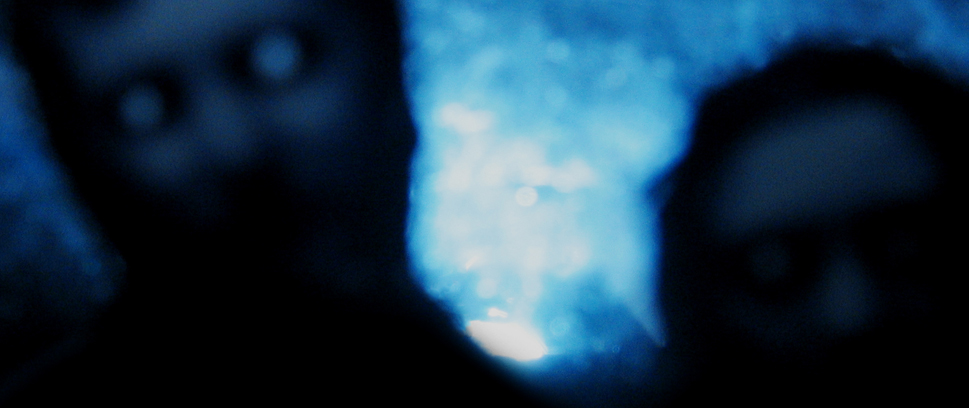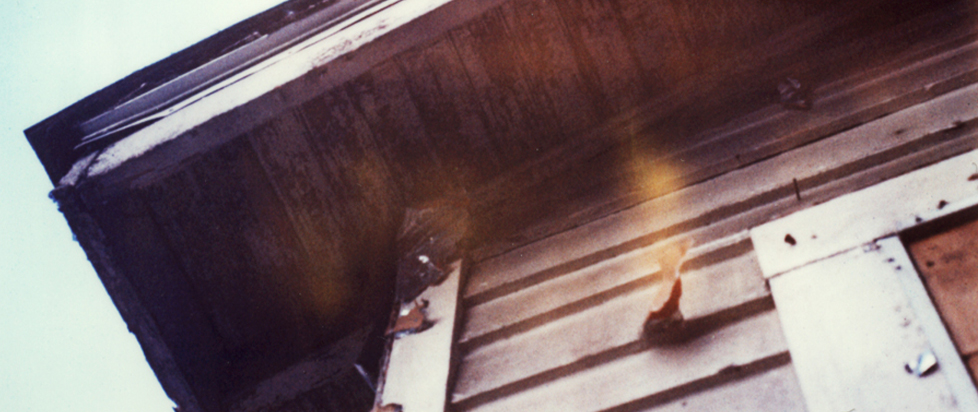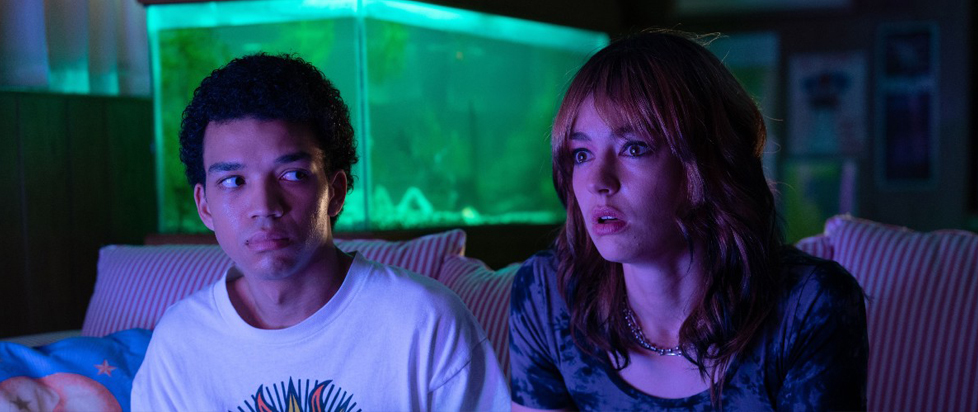
Thoughts for Sale
This is a feature story from Unwinnable Monthly #180. If you like what you see, grab the magazine for less than ten dollars, or subscribe and get all future magazines for half price.
———
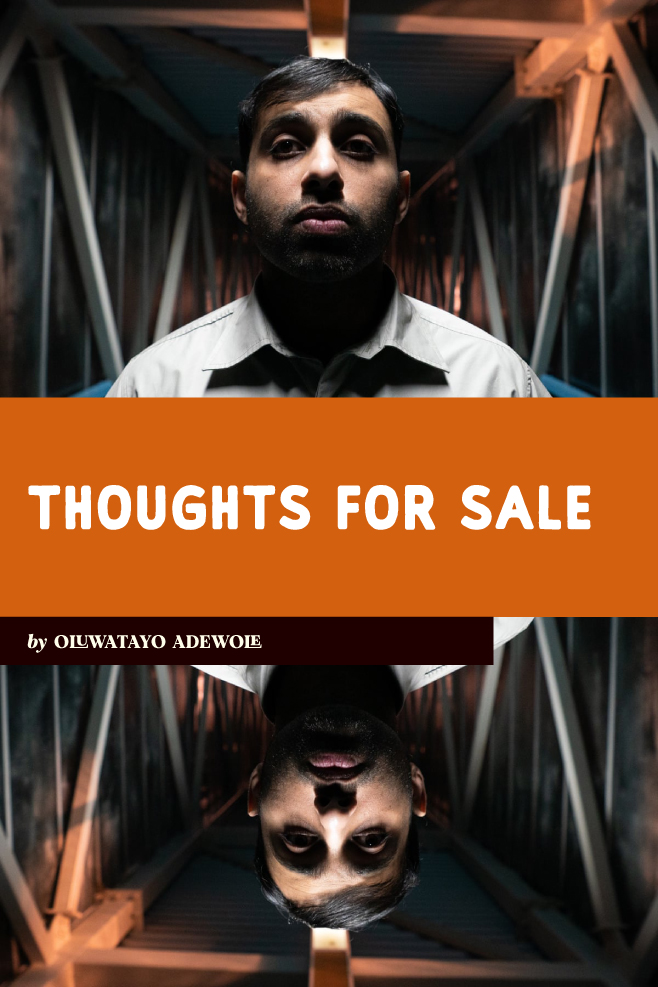
$7990! THAT HOUSE YOU SEE caused “the most spectacular buyers’ stampede in the history of United States housebuilding.” Those are the words of The Archi-tectural Forum, the distinguished periodical of the industry. And they’re right! This house is jam-packed with value, has just about everything anyone could possibly want. Listen! It is radiant-heated by General Electric. Practi-cally all of its magnificent expanse of windows is Thermopane, the new, double-paned, insulated glass. It has both a range and a refrigerator by General Electric. It has the newest Bendix DeLuxe laundry with the stainless-steel cover. It has Tracy all-steel kitchen.
On I Saw the TV Glow, Harmony Colangelo writes “No matter how much time passes, I can’t help but feel like we are, as a whole, stuck at the exact moment the knife enters and twists again and again – where we are unable to look past what coming out means, let alone heal.” Owen at the end is a walking corpse. They’re about 40, but the prosthetics look 80ish and a little inhuman. With the in/out binary at the center of the world, empathy is wretched into the sink and all that remains is another Black transfemme cautionary tale.
I recently watched Sing Sing and I have been struck by how much the prison and the suburb serve the same purpose. En masse sequestering of bodies for the preservation of whiteness and the hegemonic. An entrenchment of the Other/Monster/Subaltern and the Normal/Safe/Nation divided by distance. It feels like Justice Smith and Ian Foreman’s performances recognize that there was never going to be a world where Owen fit into the sacred geometry of the suburb, but Schoenbrun’s directing doesn’t. Ultimately, I am most struck by how Greg Kwedar’s film actually does believe There Is More Time.
How did the first Black kids in Levittown deal with growing up there? Did they appreciate their parents’ sacrifice, or did they feel more like it was them that were the sacrifices, to a vision of a world where a foot in the door is worth it even when bones are breaking? Did they form bubbles of solidarity or did they look at each other with eyes of fear masquerading as enmity? What if one was a queer, how did their parents and community deal with the ingratitude of an already outsider breaking the premise upon which this place was birthed.
To paraphrase Marquis Bey – Black transfeminity is often about being unfixed. In some ways that can be liberatory, in others the isolation can suffocate you. And you can see that throughout Smith and Foreman’s dual performances. There is always a distance, a gaze extended just a little past the reality of the moment. A delay in response as if remembering that this is indeed their body and their life. It’s not an unfamiliar feeling. But the problem with Schoenbrun’s reliance on projection is that they don’t do the work to capture suburbia’s rigidity and the precise chains that bind Owen.
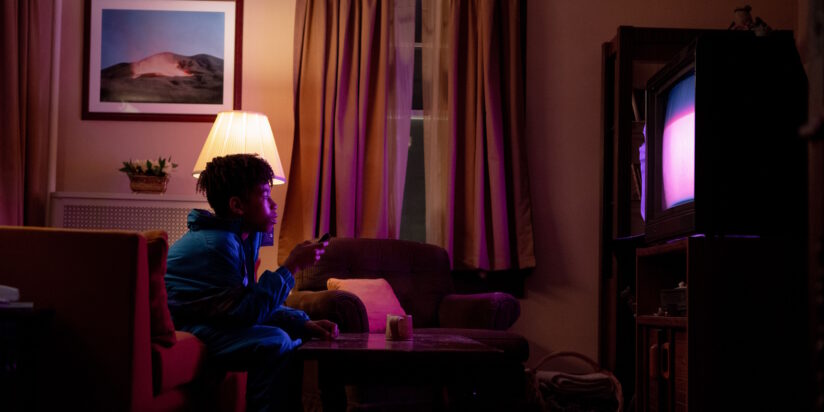
Meet Me at the Altar is a band I have wanted to love since I came across their EP “Garden” and I just can’t quite do it. They’re talented and stylish and have a habit of doing a Kelly Clarkson when they cover songs which I actually like. The problem is that their mission that bleeds into every one of their songs is to do ‘what if women and girls of color had the chance to do turn of the millennium pop punk’ doesn’t work. They are too big and bright for the pallid constraints of a long dead genre.
The cowboy disappears, and so does the soldier’s glory, the righteousness of war running cold. The city becomes another frontier, a wild and lawless place upon which the true American paragon can sharpen his manhood against new temptations daily. He must hold strong against the Black and the Jew, the Queer and the Communist, the Libidinous and the Feminist. The requirement is not one of separation, at least not for the men who venture, but it is one of domination and extraction before a return to the cradle of the suburbia, to pass on the doctrine to a new generation.
“No one who owns his own house and lot can be a Communist. He has too much to do” William Levitt. “No one who owns his own house and lot can be a Communist. He has too much to do” William Levitt. “No one who owns his own house and lot can be a Communist. He has too much to do” William Levitt. “No one who owns his own house and lot can be a Communist. He has too much to do” William Levitt. “No one who owns his own house and lot can be a Communist. He has too.”
Schoenbrun makes coloring book cinema. Fill between the lines with your own experiences. Your own childhood. Your own hyperfixations. Your own rabbit holes. Your own references. Your own alienations. Your own anxieties. Your own parents. Your own nightmares. Your own desires. Your own disgust. But you can’t just plug in experience for developed scripts or characters or worlds. Schoenbrun’s work often falls apart when you refuse the invitation to project and look at what’s actually there – or if you just can’t fit your world between the lines that they draw. Then all that’s visible is outlines bathed in pink mist.
Anyone who’s been with me to the cinema . . . or the theatre . . . or in front of the telly . . . or at a gig . . . or on the street . . .knows I can be a bit Animated when it comes to engaging with art. I think a healthy dose of pantomime, Nollywood and audience plant cheering over-wrote that bit of the politeness chip implanted at birth in English hospitals. At one notable bit of dud dialogue in I Saw the TV Glow, I audibly groaned while (as I later learned) my friend was sobbing right next to me. I still don’t quite know what to do with that.
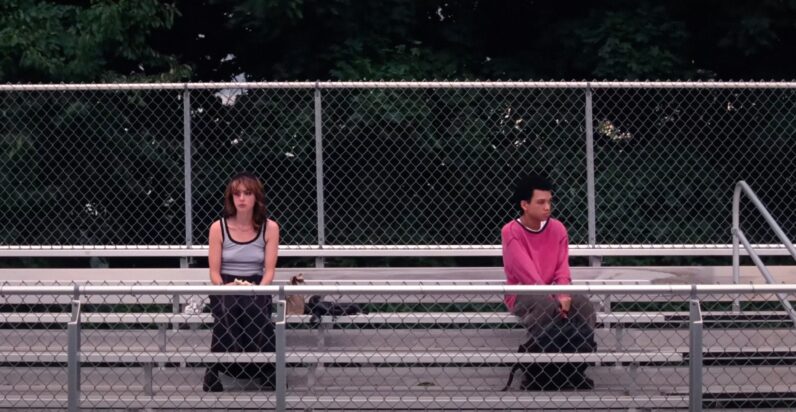
It is true that there are multiracial Black kids whose only interaction with Blackness is through their mother and the screen. But that doesn’t just happen. Where is the aunt who was scared away by Owen’s father? Where are the cousins who know they have a relative in the suburbs but never see them? Where are Owen’s mother’s girlfriends who don’t make the trip down anymore? I can understand not having their presence but I need to feel their absence. Let us feel the horror of what it means to be severed by the harsh lines of suburbia, why hold.
Sky Peals and I Saw the TV Glow are films that feel like siblings. Both are about alienated multiracial POC in situations that feel like a dead end. Both contain a feeling that the world is too much and use the methods of genre film to evoke it. I think the difference is that the world that alienates in Moin Hussain’s film has a texture. This comes through his mum, his uncle, his coworkers and even the small laughs garnered from his constantly vaping cousin. Schoenbrun never creates a living breathing world to long for, fight against or escape from.
I cannot get Smith screaming, face submerged in glass and light out of my head. I cannot get Smith screaming, face submerged in glass and light out of my head. I cannot get Smith screaming, face submerged in glass and light out of my head.
I cannot get Smith screaming, face submerged in glass and light out of my head.
I cannot get Smith screaming, face submerged in glass and light out of my head. I cannot get Smith screaming, face submerged in glass and light out of my head. I cannot get Smith screaming, face submerged in glass and.
Find me by the moonlit lake and you shall be beautiful. Wander through the woods, where all illusions fade. Where it is you and the night and the moon and the stars and the whispers of the trees and the touch of Oya, and the endless ever-changing patterns, and the sermons of soil, and the smell of salvation, and the softness of your skin, and the warmth of your blood, and the congregations of birds, and the promise that your cries have been heard and amphibian croaks and beautiful breaching births, and shuffles of small feet, and tiny rearrangements of.
———
Oluwatayo Adewole is a writer, critic and performer. You can find her Twitter ramblings @naijaprince21, his poetry @tayowrites on Instagram and their performances across London.

